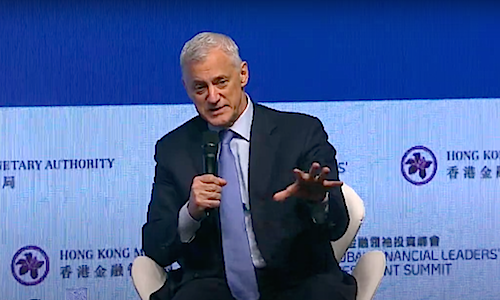Bill Winters: «Globalization Ain't Dead»
Tariffs are unlikely to reduce trade but simply redirect it, according to Standard Chartered CEO Bill Winters, who highlighted great potential from ASEAN states to capitalize on supply chain disruptions should they manage to unify.
One of the major issues being widely discussed is the threat from newly elected President Donald Trump to impose various trade tariffs, including 60 percent on Chinese imports, and the potential of de-globalization due to such moves. According to Standard Chartered CEO Bill Winters, these conjectures are «simply rubbish».
«Globalization is as strong as it's ever been. It's just showing up in different places. 60 percent tariffs coming out of some country to another country will not change the aggregate level of global trade. It will just redirect the flows. Of course, there's a friction cost and we're all going to pay for it,» Winters said in a live stream of a panel at the «Global Financial Leaders’ Investment Summit» hosted by the Hong Kong Monetary Authority (HKMA).
«Markets are so cool. They immediately re-equilibrate around the friction cost so that economies continue to thrive. Globalization ain't dead and it's not going to die.»
ASEAN Unification
In addition to tariff risks, supply chain disruptions during the Covid pandemic also led to the so-called «China Plus One» business strategy which is based on diversification of investments in manufacturing to other countries. One of the major winners has been ASEAN countries, such as Vietnam or Indonesia.
And Winters believes that the benefits thus far only represent a small portion of the true potential that could be realized under certain conditions.
«The opportunities from here, I think, are the greater unification of ASEAN itself,» he explained. «ASEAN is a trade pact but it's nothing like a free trade zone. So the intra-ASEAN flows, either through Singapore or between these countries, are still a fraction of what they could be if ASEAN were to continue its process of political reform and unification.»



























